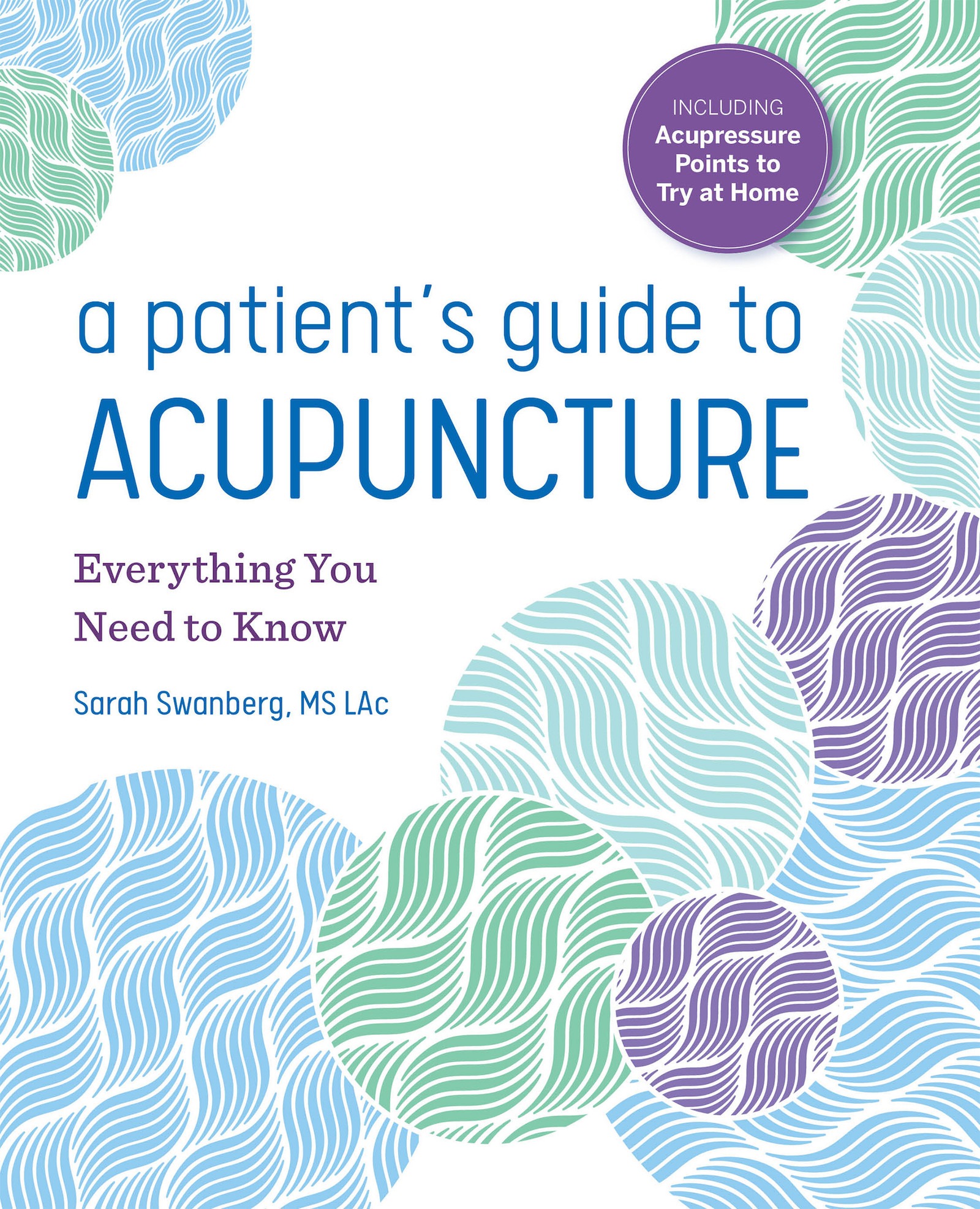In her new book, A Patient’s Guide to Acupuncture, acupuncturist and Chinese herbalist Sarah Swanberg, MS, LAc, sets out to demystify the Eastern healing modality. In simple language, she explains the philosophy and history, answers common questions, and explains how to find a practitioner. Then, she explains exactly how practitioners diagnose and treat common ailments—from acne and allergies to back pain and infertility.
Many women who are trying to get pregnant turn to acupuncture for help, and In the excerpt below, she shares her acupuncture prescription for fertility. Of course, Western medicine doesn’t recognize causes like “kidney yang deficiency,” although there is plenty of research piling up that shows acupuncture works for various issues. So far, the scientific research on acupuncture for fertility is inconclusive: Most studies have looked at whether acupuncture improves results among women using IVF, with inconsistent results.
However, practitioners like Swanberg practice traditional Chinese medicine because they believe Western medicine doesn’t always have all of the answers. If you want to try an alternate approach, acupuncture is safe and everyone agrees it lowers stress levels. So, worst case scenario, it’ll help you stay calm during the process of trying to get pregnant. Keep reading for Swanberg’s take on acupuncture for fertility.
Acupuncture for Fertility
By Sarah Swanberg, Ms, LAc
Acupuncture can help balance hormones, regulate cycles, increase egg quality, prevent miscarriage, and support a healthy pregnancy, making it useful for women with a range of infertility issues.
By using acupuncture points on the meridians to treat underlying imbalances as well as local points on the abdomen to stimulate blood flow to the reproductive organs, acupuncture has earned a well-deserved reputation for helping many women get pregnant. In fact, a lot of ob-gyns, despite not knowing exactly how it works, recommend acupuncture to their patients before sending them to a fertility specialist. And because of its effectiveness, fertility specialists also often recommend that patients undergoing fertility treatments also receive acupuncture. Studies have shown that acupuncture in conjunction with in vitro fertilization (IVF) increases the chance of a viable pregnancy.
RELATED: 9 Expert Tips for a Healthy Pregnancy
And since it takes two to tango, we can’t forget to mention sperm quality. Male infertility issues related to sperm count and motility (ability to “swim”) are on the rise and becoming a major part of the infertility landscape. Studies suggest that acupuncture can also be used to help increase sperm quality in men.
Diagnosis and Treatment
The primary patterns we look for when treating issues with fertility:
Kidney Yin Deficiency: Shorter follicular phase, high follicle-stimulating hormone (FSH), low estrogen, night sweats
Kidney Yang Deficiency: Shorter luteal phase, low progesterone, feeling coldfrequently
Liver Qi Stagnation: Stress, irritability, PMS, cold hands and feet
Blood Stagnation: Clotty, painful, heavy periods
Blood Deficiency: Amenorrhea or irregular periods, fatigue, pale skin, and lips; patient might have iron-deficiency anemia
Because of acupuncture’s popularity among women trying to get pregnant, many acupuncturists specialize in fertility and have practices that are dedicated, solely or in part, to working with this population. A large portion of my practice is working with women experiencing fertility challenges, and getting their “I’m pregnant!” emails (and sometimes photos of just-peed-on pregnancy tests) is one of the most joyous and gratifying parts of my job. As the struggle to get pregnant is typically filled with stress and anxiety, the emotional healing that acupuncture offers can be an added benefit during this time.
RELATED: How Your Diet Impacts Your Child Even Before Your Pregnant
Depending on your pattern diagnosis, your acupuncturist will recommend a treatment frequency that might range from twice a week to twice a month. For patients hoping to get pregnant naturally, I typically suggest getting regular acupuncture for at least three to four months to see if it can help. When patients are going through in vitro fertilization, I like to work with them during the stimulation and retrieval phase, and then in the week leading up to and just after the embryo transfer. Once we get what is known in the fertility world as the BFP (Big Fat Positive, aka positive preg-nancy test), we move on to supporting the pregnancy and preventing and treating some of the known issues that occur during this very exciting time.
Excerpt from A Patient’s Guide to Acupuncture, by Sarah Swanberg, published by Althea Press. Copyright © 2019 by Callisto Media, Inc. All rights reserved.






























